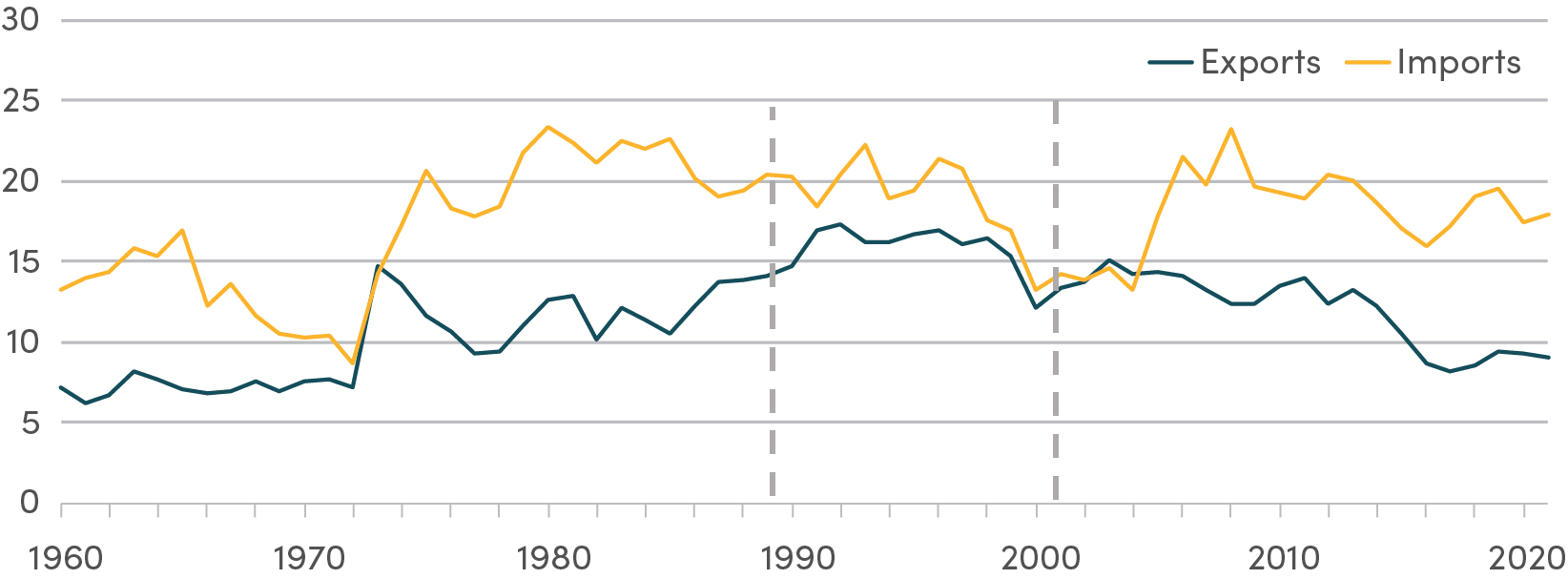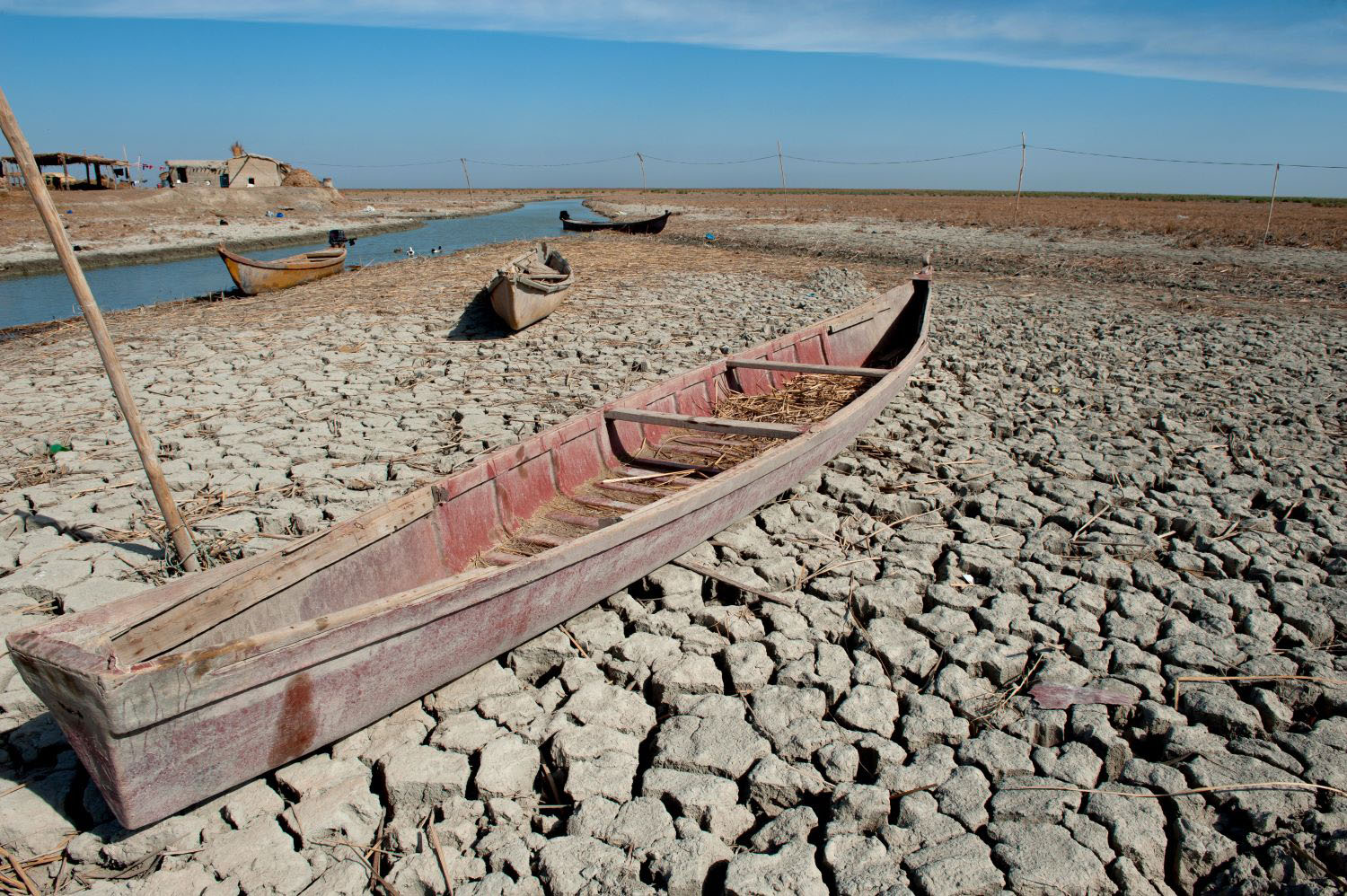Central America experienced almost a decade of economic progress between 2003 and 2008, when GDP per capita growth averaged 3 percent per year. Yet the region’s five countries–Costa Rica, El Salvador, Guatemala, Honduras and Nicaragua–still lag other middle income economies. Their high dependence on their primary commodities and the U.S. economy makes the growth slow and volatile. Even more worrying are high levels of poverty and inequality. Significant structural changes are urgently needed to secure sustained and inclusive growth. Yet despite these countries’ pressing development issues, attention to their problems is often eclipsed by interest in Latin America’s larger economies, especially Mexico. As part of an effort to fill this vacuum, CGD and Seattle International Foundation recently hosted a roundtable to discuss the key economic development challenges facing Central America. I was pleased that we were able to welcome representatives of leading think tanks in the region, including top-level researchers from Fundación Nacional para el Desarrollo (FUNDE), Centro Internacional para el Desarrollo Humano (CIDH) , Fundación para el Desarrollo de Centroamerica (FUNDESCA), Instituto de Estudios Estratégicos y Políticas Públicas (IEEPP), laRED and INCAE Business School. These organizations are well known for their research in topics such as governance, development of government institutions, national defense and security, regional logistics, rural development, etc. Among the attendees we had Arturo Condo, the dean of INCAE Business School, who is an expert on competitiveness and business climate in Central America; Javier Melendez who is founder and former executive director of the IEEPP and ; and Roberto Rubio, the executive director of FUNDES.
As part of an effort to fill this vacuum, CGD and Seattle International Foundation recently hosted a roundtable to discuss the key economic development challenges facing Central America. I was pleased that we were able to welcome representatives of leading think tanks in the region, including top-level researchers from Fundación Nacional para el Desarrollo (FUNDE), Centro Internacional para el Desarrollo Humano (CIDH) , Fundación para el Desarrollo de Centroamerica (FUNDESCA), Instituto de Estudios Estratégicos y Políticas Públicas (IEEPP), laRED and INCAE Business School. These organizations are well known for their research in topics such as governance, development of government institutions, national defense and security, regional logistics, rural development, etc. Among the attendees we had Arturo Condo, the dean of INCAE Business School, who is an expert on competitiveness and business climate in Central America; Javier Melendez who is founder and former executive director of the IEEPP and ; and Roberto Rubio, the executive director of FUNDES.
| Name | Institution | Country |
| Arturo Condo | Dean of INCAE | Costa Rica |
| Roberto Rubio Fabian | FUNDE | El Salvador |
| Eduardo Stein | laRED | Honduras/Guatemala |
| Ana Marcela Villasuso | CIDH | Costa Rica |
| Jose Angel Tolentino | FUNDE | El Salvador |
| Enrique Saenz | FUNDESCA | Nicaragua |
| Javier Melendez | IEEPP | Nicaragua |
Discussion focused on the draft of a report I am co-authoring with Jose Luis Guasch and
Veronica Gonzales,
Competitiveness in Central America: The Road to Sustained Growth and Poverty Reduction. Four points in the discussion stood out:
- Participants are deeply concerned about the weakening of governance and political institutions in Central America, and the risk that recent political developments will hinder economic and social progress. For example, the conflict between the three branches of government in El Salvador has revealed severe corruption among government officials, resulting in a deep fragmentation of the state. In Guatemala, people fear that the upcoming elections will be the most violent in the country’s history. The election process has been riddled with illegal political propaganda activities and campaign financing.
- Discussants liked our suggestion to pilot CGD´s proposed Cash on Delivery Aid (COD) Aid approach in secondary education within the region and were interested in understanding the key elements of a COD Aid contract.
- They noted that the export-led growth models in their countries can only work if they increase international competitiveness. Our paper identifies five critical areas: (a) innovation, knowledge transfer and quality systems; (b) infrastructure and logistics; (c) mainstreaming small and medium-sized businesses; (d) education/human capital and (e) reducing crime and violence.
- Crime and violence are major concerns and a huge constraint on development but even if these can be addressed the region lacks essential features necessary to boost its export-led growth. Several experts recalled that even before violence reached its current levels, the Central American economies were largely stagnant, especially Guatemala, Honduras and Nicaragua. While reducing violence is an urgent and necessary condition for furthering the region’s development, it is not sufficient.
Hearing first-hand experiences of these experts helps to improve the quality of our research. In the future, I hope to maintain deeper ties with counterparts in the region, so that together we can find ways to address the region’s challenges and foster economic development.

CGD blog posts reflect the views of the authors, drawing on prior research and experience in their areas of expertise.
CGD is a nonpartisan, independent organization and does not take institutional positions.


 As part of an effort to fill this vacuum, CGD and
As part of an effort to fill this vacuum, CGD and 



